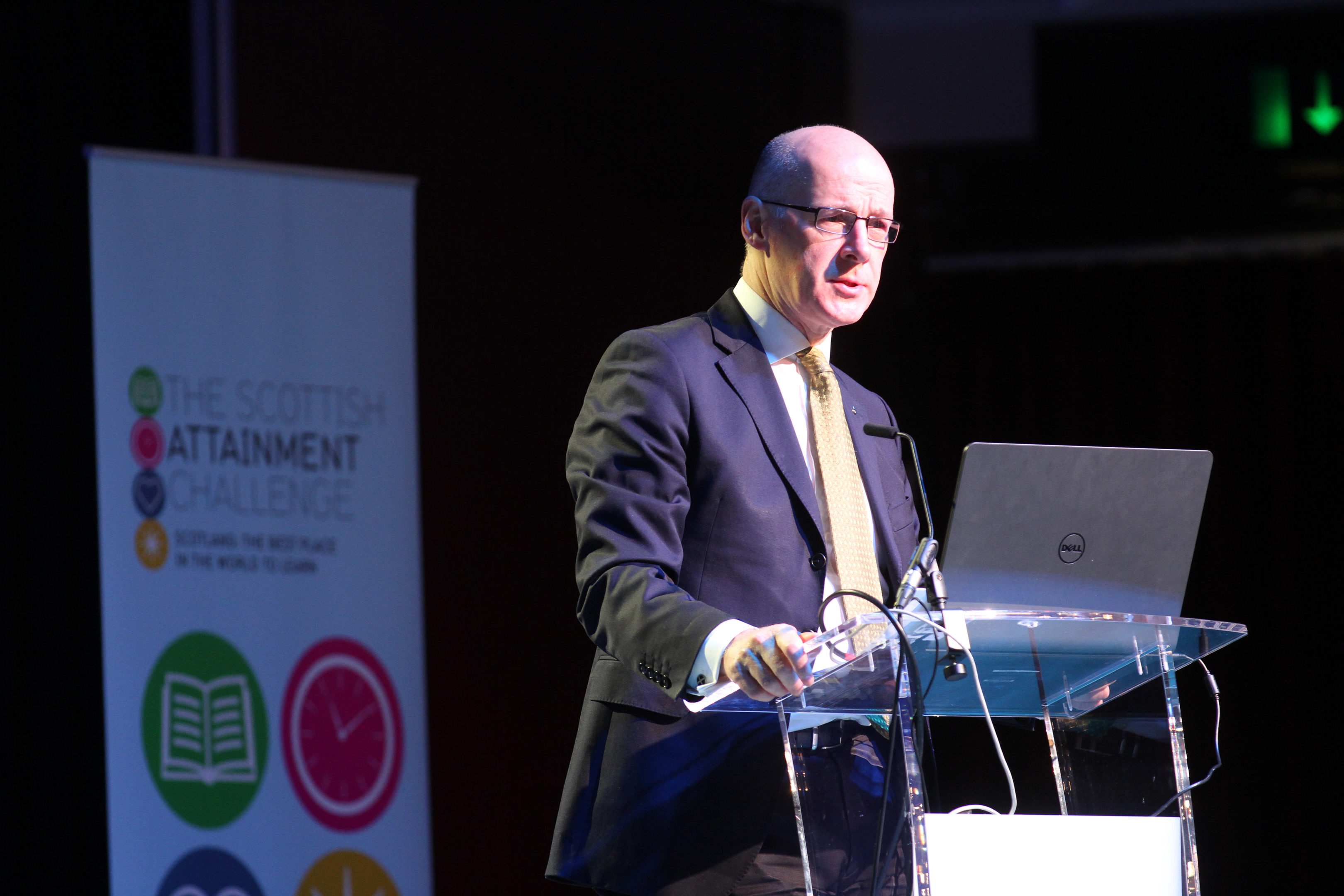Education Scotland’s chief executive has admitted safety controls on a social networking tool used in Scottish schools are “not hugely effective”.
Gayle Gorman, who also serves as Her Majesty’s chief inspector of education, admitted there is “currently no truly effective tool which could be implemented in Glow”, the digital learning platform which hosts the Yammer application.
The Courier revealed last month that education bosses had signed off on the rollout of the social network to primary and secondary schools, despite knowing it was vulnerable to individuals who could look to find children and “do them harm”.
Failures in the monitoring system came to light following the discovery of graphic images and comments discussing drugs and alcohol in June, which were left accessible to children despite being flagged up by parents.
It further emerged that Education Secretary John Swinney was made aware in April of other “pornographic” material circulating on the network but took no action at the time to prevent young children accessing Yammer.
In an email to Mr Swinney on the mechanisms in place to prevent inappropriate content being uploaded, Ms Gorman wrote that she had ordered a review into the risks “when we cannot block such material”.
She said: “This is a very challenging area. Currently in Glow we have Key Word Monitoring in Yammer which means that any use of words on our list will trigger a moderator to check content – whether this is posted publicly, privately or in a direct message – and a profanity filter on email which blocks emails with inappropriate language.
“Unfortunately, the technology available to assess the content of images is expensive and not hugely effective (even companies like Facebook rely mainly on human review and intervention based on reports and complaints).
“Artificial intelligence is evolving rapidly in this area but there is currently no truly effective tool which could be implemented on Glow.”
Leading cyber security expert Dr Xavier Bellekens, from Abertay University, told The Courier last month it was “totally inappropriate” for moderators to expect children to self-regulate content on the network through a reporting system.
Andy Burrows, NSPCC associate head of child safety online, insisted it was “absolutely crucial” that proper safeguarding procedures were in place.
He said: “Safeguarding children should have been the priority before this app was rolled out to all school pupils in Scotland.”
Scottish Labour’s education spokesman Iain Gray said: “It is simply not acceptable for Ministers to be warned of internet safety failures, choose not to inform parents that they exist and fail to pull the plug on the site.
“John Swinney must explain why he did nothing to close down this unsafe app and why he ignored safety risks to allow children to access Yammer.”
Scottish Conservative education spokeswoman Liz Smith described it as “extremely worrying” and “the latest revelation in what is an extremely regrettable saga for the SNP”.
Mr Swinney said: “I was advised of an incident in April where an inappropriate image had been posted on yammer as part of inappropriate behaviour by pupils.
“At that time I sought and received assurance from the Chief Inspector of Education that immediate action had been taken to remove the image completely from the site and to prevent it being circulated.
“On being advised in June of a separate complaint from a parent relating to a different matter it became clear that there were other issues to address which required Yammer to be suspended.
“Yammer will remain suspended while a review takes place, moderation is strengthened and until I am satisfied that the appropriate safeguards are in place for all pupils.”










